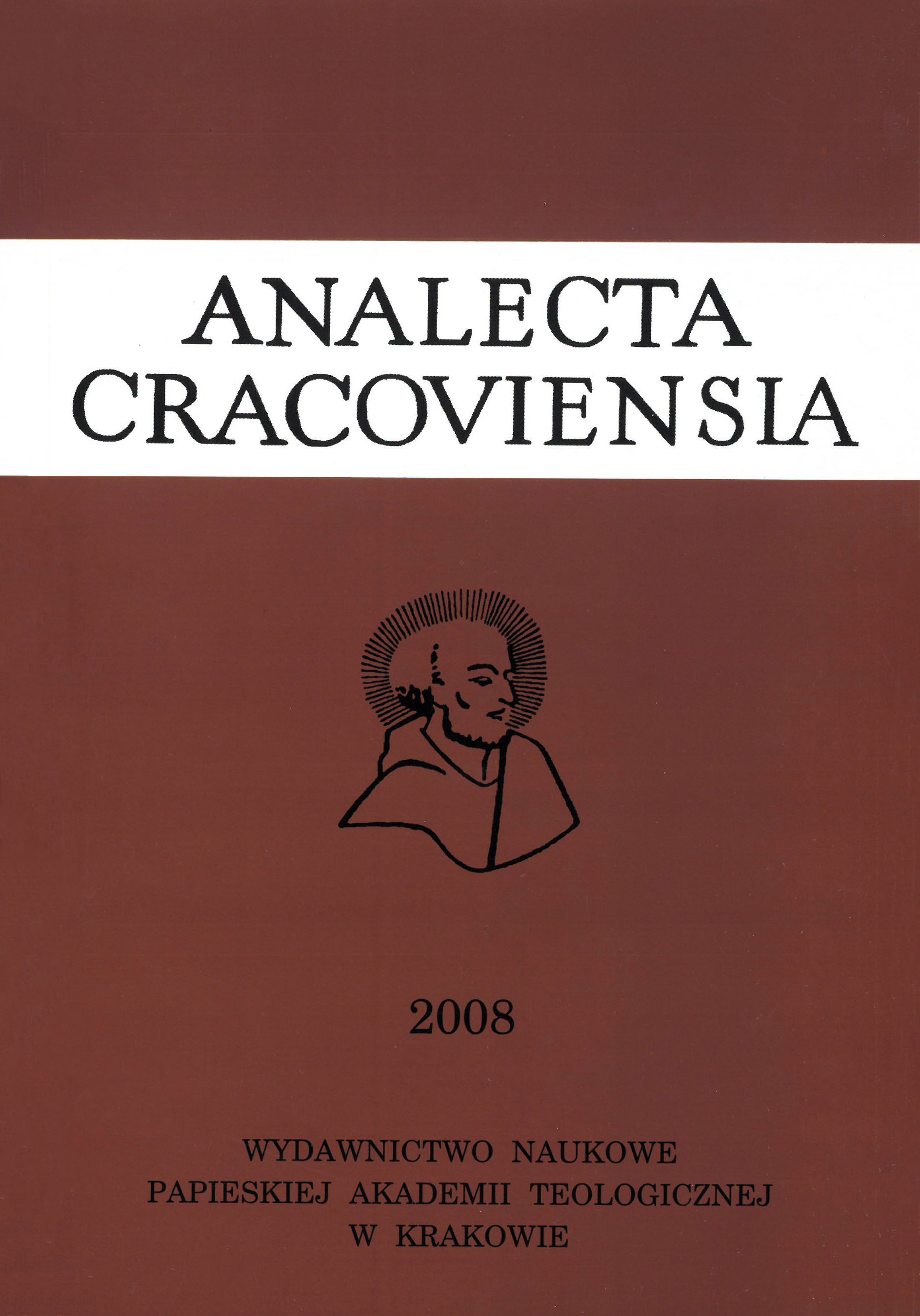Istota i cechy niebiańskiego szczęścia w nauczaniu Grzegorza Wielkiego
DOI:
https://doi.org/10.15633/acr.4010Abstrakt
The main purpose of the article is to look at the doctrine of Gregory the Great and explore his teaching on the essence and characteristics of the celestial felicity. According to the teaching of Gregory the Great, the essence of celestial felicity consists of two elements: the vision of God and the joyful fruition which flows from the vision. The vision of God identifies with the possession of God and unity with Him through the beatific love. The celestial felicity first of all is characterized by feature of perfection because of the clarity of the celestial vision. The celestial felicity is spiritual, i. e., the felicity concerns only spirituality of the human in contrast to the teaching of the followers of the chiliasm. The celestial felicity is eternal, because the human soul in heaven participates in the eternity of God. The celestial felicity is true, because in the state of the felicity the human perfectly communes with God who is Truth (John 14:6). The celestial beatitude is beautiful, because in heaven the human participates in God clothed with majesty (Ps 92:1).
Pobrania
Opublikowane
Numer
Dział
Licencja
Prawa autorskie (c) 2022 Oleksandr Kashchuk

Praca jest udostępniana na licencji Creative Commons Attribution-NonCommercial-NoDerivatives 3.0 Unported License.
Obecnie autorzy publikujący w czasopiśmie udzielają jego wydawcy zgody o następującej treści:
- Autor zachowuje autorskie prawa majątkowe do utworu, a jednocześnie udziela wydawcy czasopisma zgody na jego pierwszą publikację w wersji drukowanej i wersji online na licencji Creative Commons Uznanie autorstwa 4.0 Międzynarodowe oraz zgody na wykonywanie opracowań, w tym przekładów.
- Autor ma możliwość udzielania zgody niewyłącznej na opublikowanie utworu w wersji, która ukazała się w czasopiśmie (np. zamieszczenia go w repozytorium instytucjonalnym lub opublikowania w książce), wraz z informacją o jego pierwszej publikacji w czasopiśmie.
- Autor może umieścić swój utwór online (np. w repozytorium instytucjonalnym lub na swojej stronie internetowej) jeszcze przed zgłoszeniem utworu do czasopisma.

